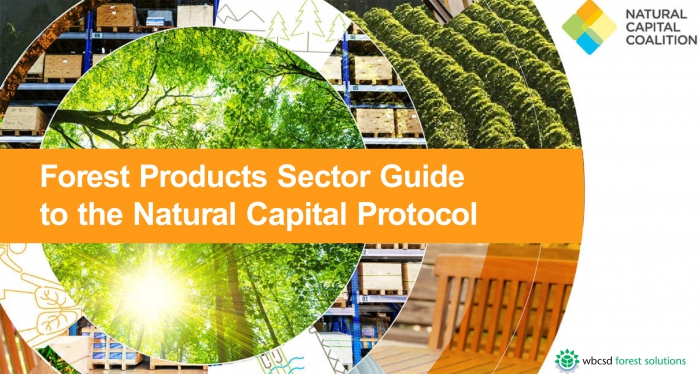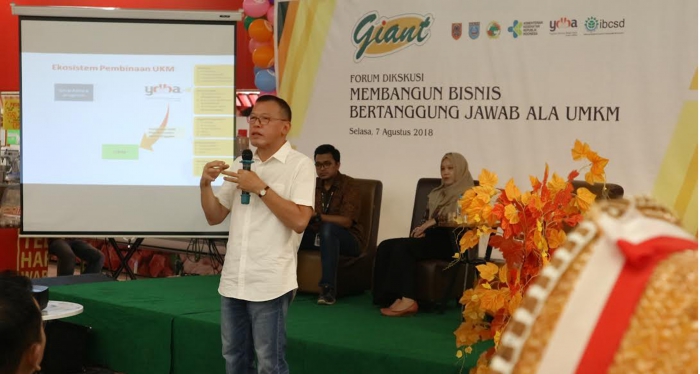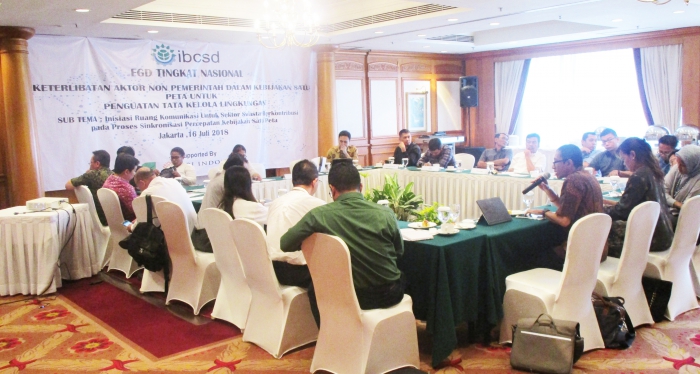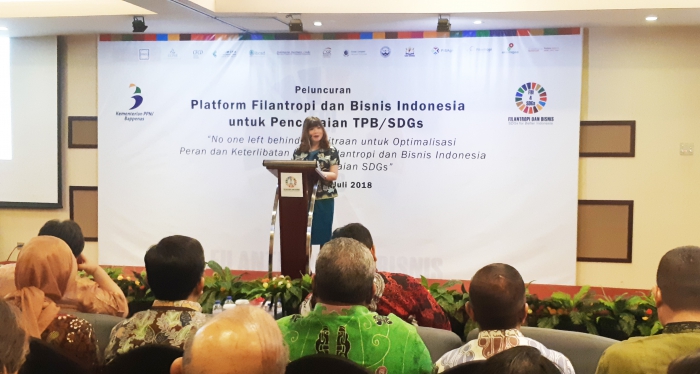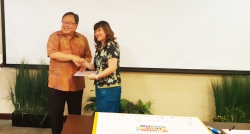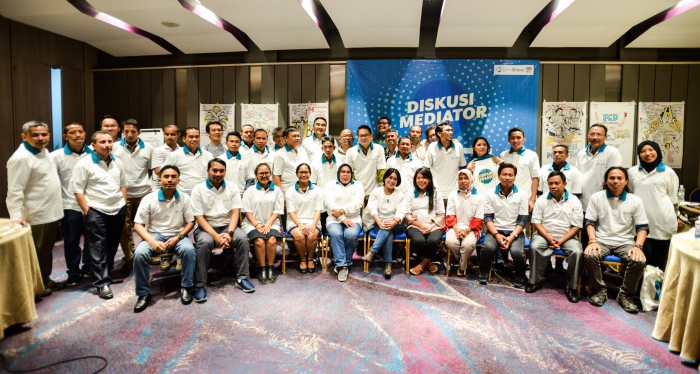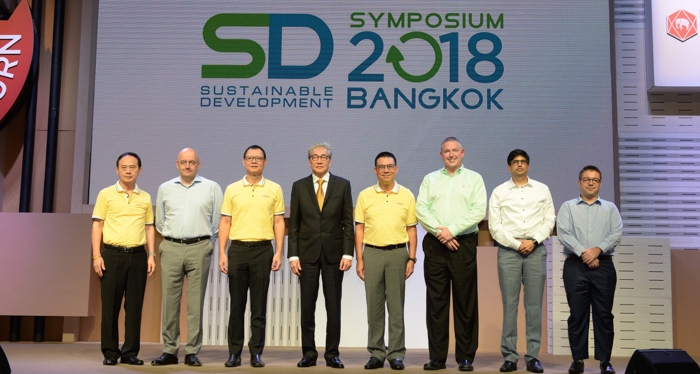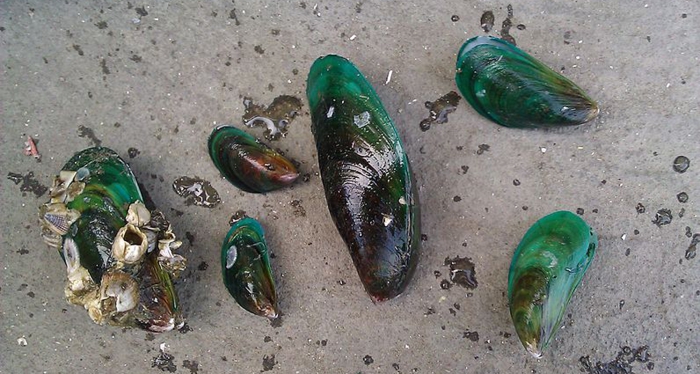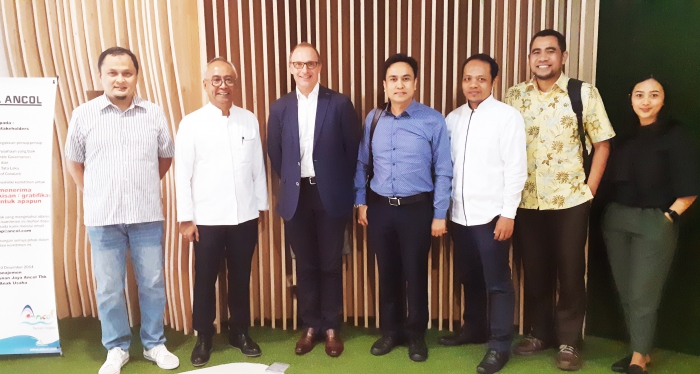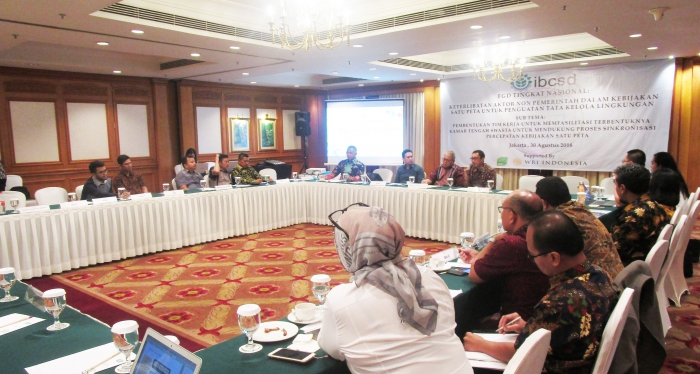
FGD 3 One Map Initiatives
As part of important stakeholders, private sector is strategically encouraged and needed to be involved in the process.
In response to private sector willingness to contribute during the process, IBCSD held series of dialogues inviting representatives from the central goverment, local government (Regency of Siak and Musi, Banyuasin), private companies, business associations and non-governmental organizations.
The discussions are focusing into the issues of regulation and mechanism in the one map policy process.
Through these positive and extensive discussion, the working group, named Kamar Tengah, laid a strong foundation both on enabling regulation and mechanism for private sector to further work together and contribute in the implementing process of One Map Policy.
